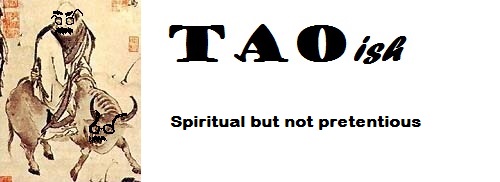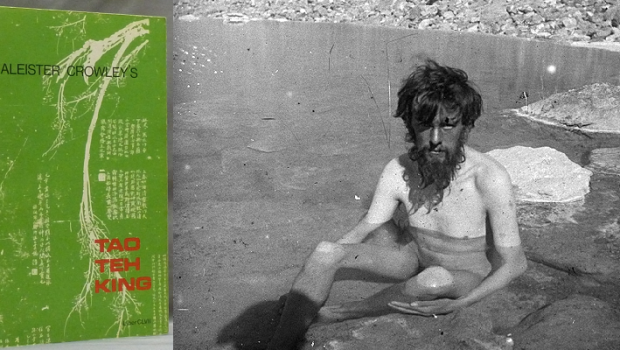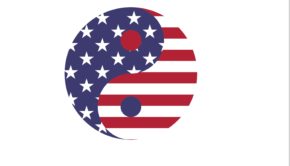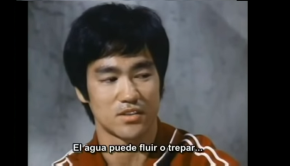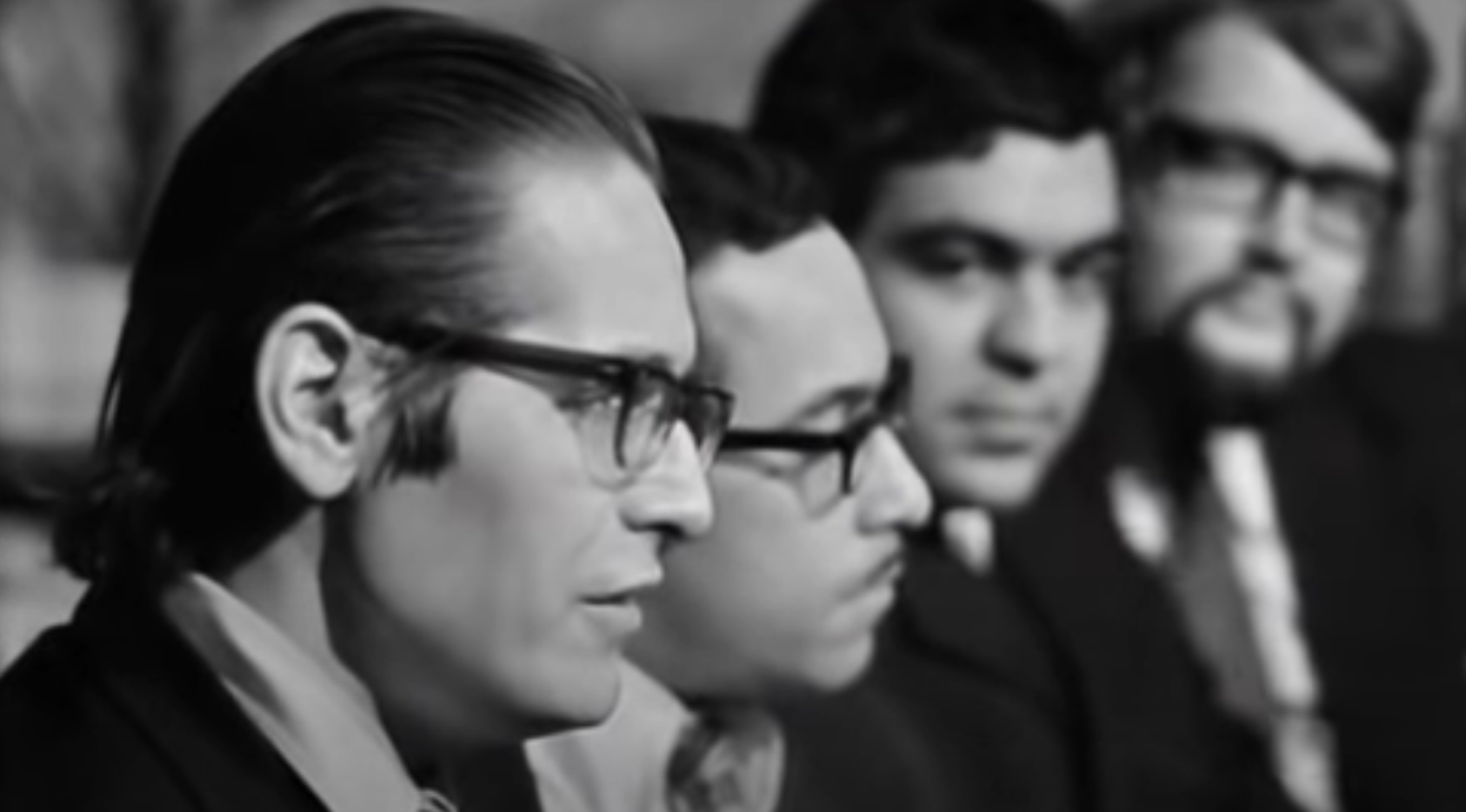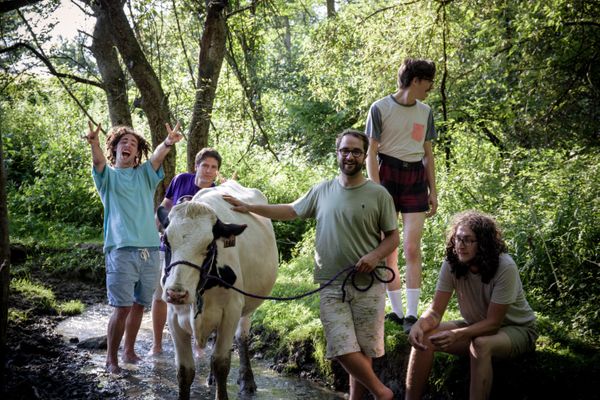Aleister Crowley’s Black Magickal “Tao Teh King”
There are a lot of good English editions of the Daodejing, from scholarly translations by Victor Mair and Robert Henricks to the more poetic version of Ursula LeGuin. There are also some very bad efforts, starting with the inexplicably popular edition by Stephen Mitchell, who speaks no Chinese, consulted no Chinese translators, cut out large chunks of the book and added big sections of his own (without mentioning that to anyone.) More on him later.
I don’t know if Aleister Crowley’s version is the worst, but it’s in a close race for the most bizarre with Timothy Leary’s psychedelic interpretation. In 2,500 years of study, only Crowley managed to find “the portal of serpent-wonder” in the first chapter of this ancient classic.
Crowley was not a Satanist, as many have alleged, but he was perhaps the most colorful and decadent spiritual tourist of the early 20th century, a very decadent time. He ran through his inheritance exploring black magick, pornography, hashish, opium, bisexuality, elite mountain climbing and BDSM, writing poetry and pornography, and — according to some — serving as a British spy throughout his adventures.
Even as a child, his mother called him “the Beast,” and British tabloids named him “The Wickedest Man in the World.” Out of modesty, he called himself simply DCLXVI or “The Great Beast 666.” Crowley bought Boleskine Manor on Loch Ness and eventually received a revelation from Aiwass, a messenger of the Egyptian god Horus, which led him to found Thelema (an occult religion that continues today).
The mystic ran across the Daodejing on a journey from Burma through Yunnan in southern China during 1905-6. In the introduction to his version, Crowley says he cranked it out working from Legge’s English translation in just three days “during my Great Magical Retirement on Aesopus Island in the Hudson River during the summer of 1918.” He explained that “I discovered immediately that I was totally incompetent” so he enlisted the help of an astral being named Amalantrah, and used their shared knowledge of Jewish Qabala to “unlock” Lao Tzu’s “treasure house.”
Having once reduced Lao Tze to Qabalistic form, it was easy to translate the result into the language of philosophy. I had already done much to create a new language based on English with the assistance of a few technical terms borrowed from Asia, and above all by the use of a novel conception of the idea of Number and algebraic and arithmetical proceedings, to convey the results of spiritual experience to intelligent students. It is therefore not altogether without confidence that I present this translation of the Tao Teh King to the public.
The entire book in now over 75 years old and should be in the public domain; you can find versions around the interwebs, including on the website To Mega Therion, devoted to Crowley.
To give you a sample, here is Crowley’s take on chapter one compared to that of scholar Robert Henricks.
Henricks:
1
1. As for the Way, the Way that can be spoken of is not the constant Way;
2. As for names, the name that can be named is not the constant name.
3. The nameless is the beginning of the ten thousand things;
4. The named is the mother of the ten thousand things.
5. Therefore, those constantly without desires, by this means will perceive its subtlety.
6. Those constantly with desires, by this means will see only that which they yearn for and seek.
7. These two together emerge;
8. They have different names yet they’re called the same;
9. That which is even more profound that the profound—
10. The gateway of all subtleties.
Crowley:
CHAPTER I
THE NATURE OF THE TAO.
1. The Tao-Path is not the All-Tao. The Name is not the Thing named.
((Tao parallels Pleroma, Shiva, Jod, etc. Teh parallels Logos, Sakti, He, etc. But the conception of Laotze unites all these at their highest. The best parallel is given in Liber CCXX, Caps. I. and II., where Hadit is Tao and Nuit, Teh — (Yet these are in certain aspects interchanged!) The point of this paragraph is to make discrimination or definition, not to assert the superiority of either conception. The illusion of any such preference would depend on the Grade of Initiation of a Student. A Magus 9 Degree = 2 Square of A.’. A.’. would doubtless esteem the Path of ‘Becoming’ as his Absolute, for the law of his Grade is Change (see Liber I. vel Magi.) But — who
knows? — an ipsissimus 10 Degree = 1 Square might find a conception to transcend even this. For instance, one might interpret this first paragraph as saying that Becoming is not Tao, but that Tao is a Being whose nature is Becoming. Matter and Motion cannot exist separately. The reader should regard every verse of this Book as a text worth of the most intense and prolonged meditation. He will not understand the Book thoroughly until he has wrought his mind into its proper shape in the great Forge of Samadhi.))
2. Unmanifested, it is the Secret Father of Heaven and Earth; manifested, it is their Mother.
((This doctrine is the initiated teaching to hint at which priests invented legends of parthenogenesis.))
3. To understand this Mystery, one must be fulfilling one’s will, ((In a moral state, therefore, without desire, frictionless.)) and if one is not thus free, one will but gain a smattering of it.
4. The Tao is one, and the Teh but a phase thereof. The abyss of this Mystery is the Portal of Serpent-Wonder. ((Cf. Berashith for the identity of the phases of ‘O Degree’ and ‘something.’ Serpent-Wonder refers to the Magical Force called Kundalini.))
